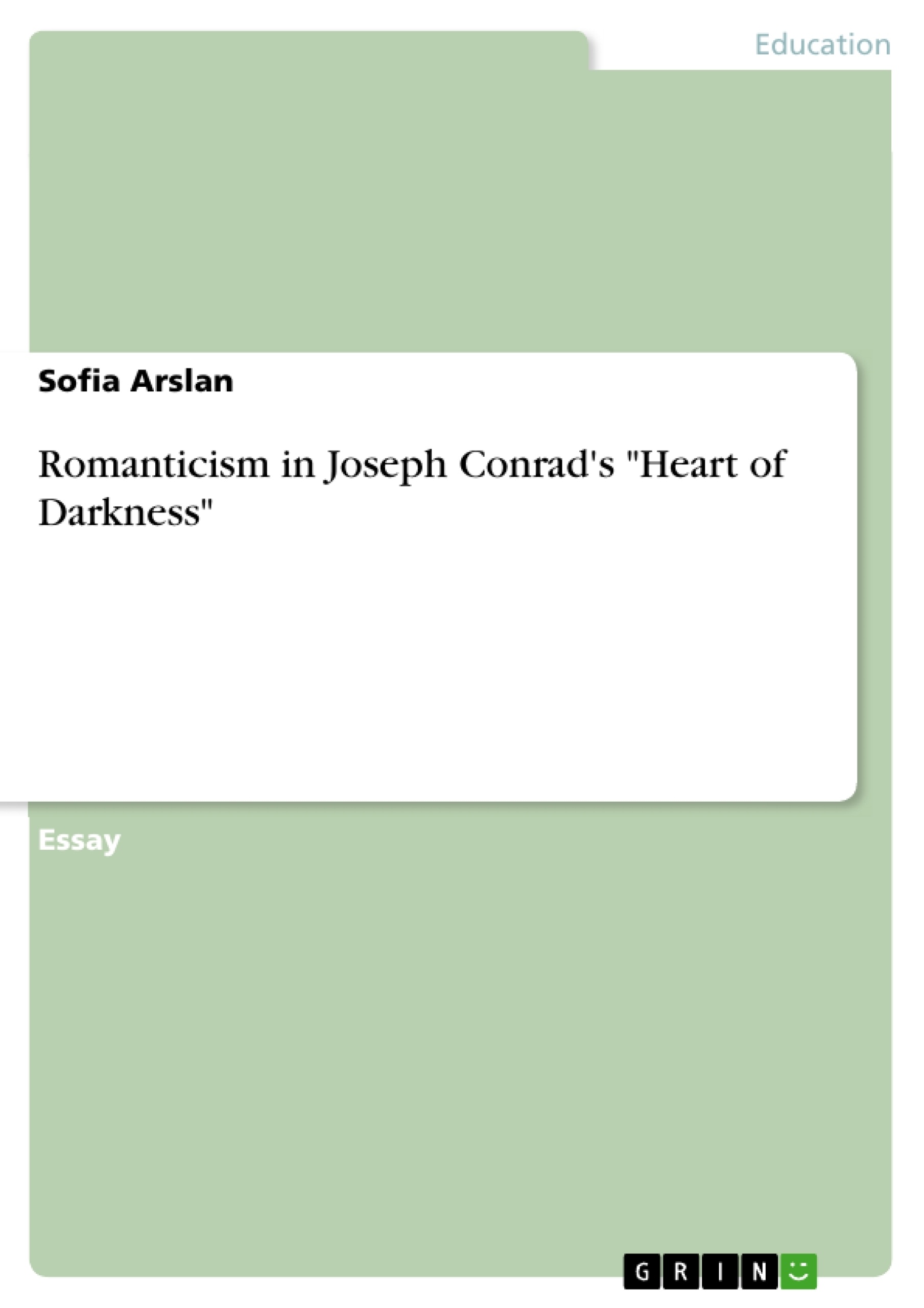Conrad's "Heart of Darkness" is first and foremost a modern text, taken by many to be a deeply psychoanalytical piece of work, but the novella also carries a deeper subtext that brushes against romantic, metaphysical and absurdist notions and leaves them all justifiable.
Although there is no precise definition of the term 'romanticism', it is taken as an artistic and literary movement that peaked in the earlier half of the nineteenth century. The characteristics are loosely defined as a movement in which art – particularly poetry and criticism – focused on a fascination with the exotic, unseen mystical world.
This era in liberal arts, blooming mostly as a reaction to the French revolution, responded to the restrained style of classical forms of art, which was driven chiefly by an obedience to classical parameters and intellectualism rather than emotions and imagination as it was in Romantic era works. Common concepts related to romanticism are imagination, sensitivity, nature, adventure, feeling and instincts.
Table of Contents
- Romanticism in Joseph Conrad's Heart of Darkness
- Nature as Art
- Marlow and the Romantic Spirit
- The Exotic and the Mystical
- Instinct and the Dark Side of Romanticism
- Romanticism and Anti-Oppression
Objectives and Key Themes
This essay analyzes the Romantic elements present in Joseph Conrad's novella, Heart of Darkness. It explores how Conrad's work, while considered modern, incorporates concepts and themes associated with Romanticism, particularly regarding nature, exploration, the exotic, and the interplay between reason and instinct.- The Role of Nature in Romantic Literature
- The Romantic Spirit of Exploration and Adventure
- The Fascination with the Exotic and the Mystical
- The Conflict Between Reason and Instinct
- Romanticism and the Fight Against Oppression
Chapter Summaries
The essay begins by defining Romanticism as a literary movement that emphasized emotion, imagination, and the exotic. It highlights the importance of nature and adventure in Romantic works. The essay then explores how Conrad's Heart of Darkness incorporates these themes. It analyzes the detailed descriptions of nature, particularly the evolving darkness of the African jungle, as a reflection of Romantic sensibility. The essay further examines Marlow as a central figure embodying the Romantic spirit of exploration and adventure. His journey into the "heart of darkness" reflects the Romantic thirst for discovery and the fascination with the unknown. The essay also discusses how the entire premise of British colonialism in Heart of Darkness, despite its exploitative nature, can be seen as a Romantic pursuit of the exotic and the mystical. Finally, the essay delves into the conflict between reason and instinct in the novel, analyzing how Kurtz's descent into madness demonstrates the dark side of the Romantic ideal of rejecting intellectualism. It concludes by exploring the potential connection between the Romantic spirit of anti-oppression and Marlow's ability to relate to the native Africans.Keywords
This essay delves into the intersection of Romanticism and modern literature, focusing on the themes of nature, exploration, the exotic, reason, instinct, and anti-oppression in Joseph Conrad's Heart of Darkness. Key concepts explored include the Romantic fascination with nature, the adventurous spirit of exploration, the allure of the mystical and unknown, the conflict between intellectualism and instinct, and the Romantic ideal of anti-oppression.- Arbeit zitieren
- Sofia Arslan (Autor:in), 2017, Romanticism in Joseph Conrad's "Heart of Darkness", München, GRIN Verlag, https://www.grin.com/document/366081



